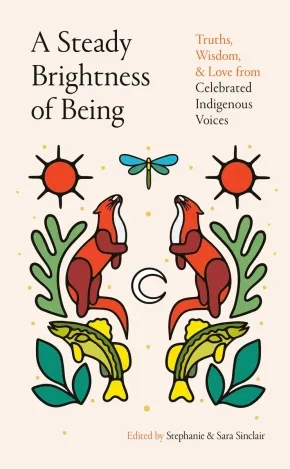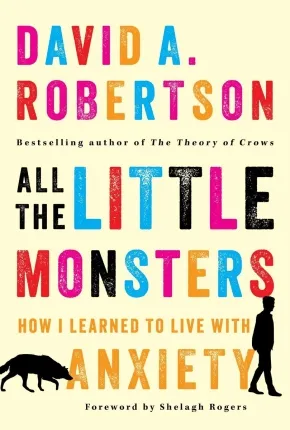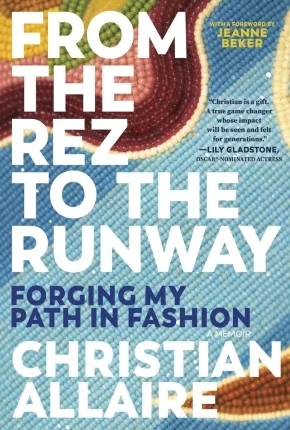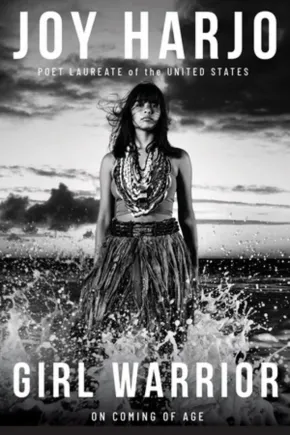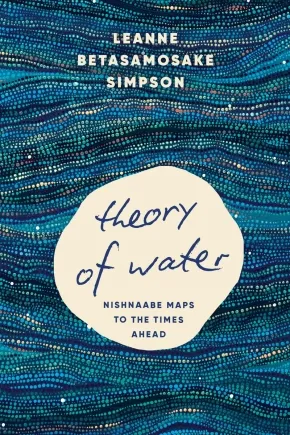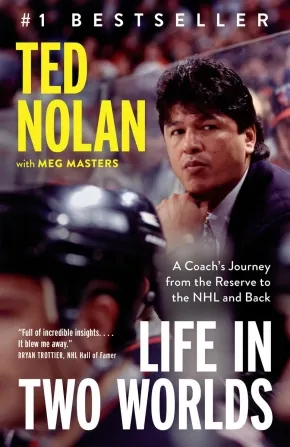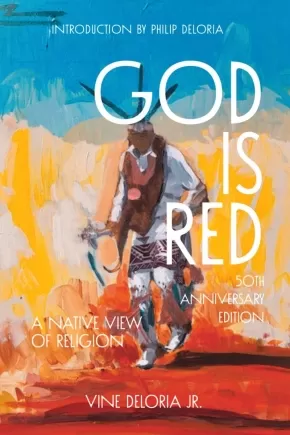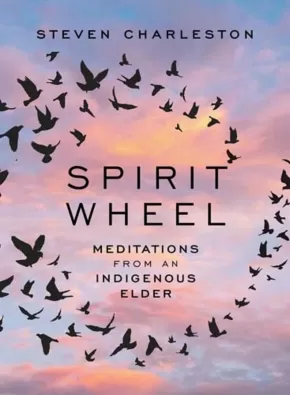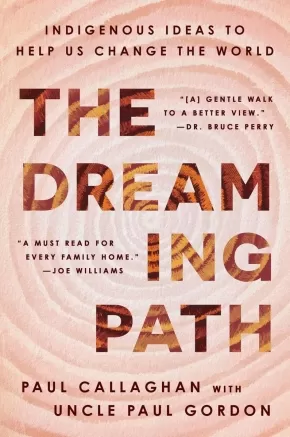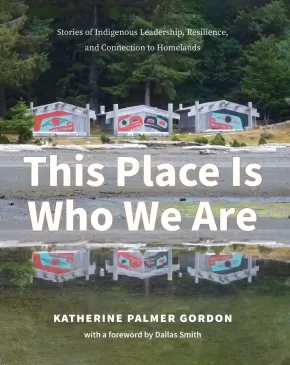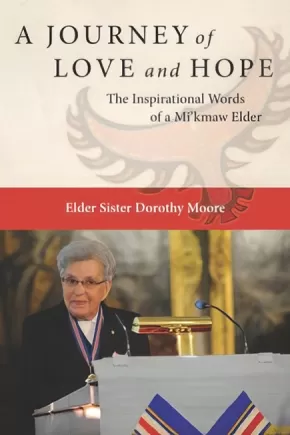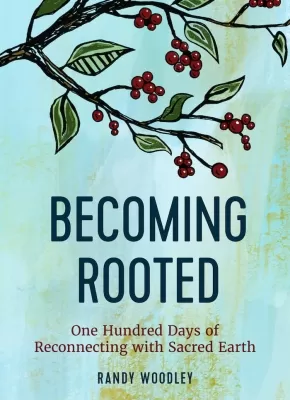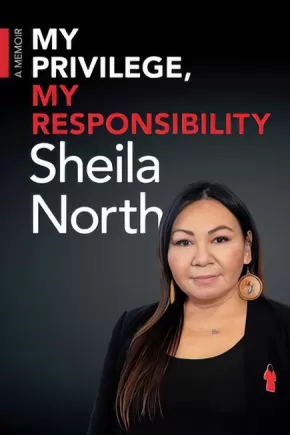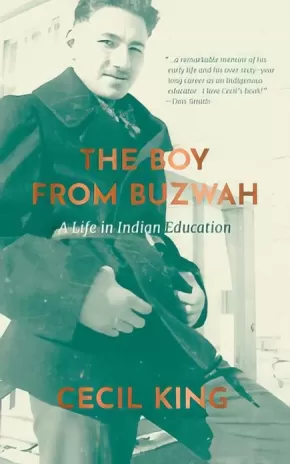
Stories of Inspiration
1
-
15
of
75 Results;
Sort By
Go To
of 5
A Steady Brightness of Being: Truths, Wisdom, and Love from Celebrated Indigenous Voices
$32.00
Format:
Hardcover
Text Content Territories:
Indigenous Canadian;
Reading Level: N/A
ISBN / Barcode: 9780735250369
Synopsis:
Synopsis:
Bringing together voices from across Turtle Island, a groundbreaking collection of letters from Indigenous writers, activists, and thinkers—to their ancestors, to future generations, and to themselves.
Drawing on the wisdom and personal experience of its esteemed contributors, this first-of-its-kind anthology tackles complex questions of our times to provide a rich tapestry of Indigenous life, past, present, and future. The letters explore the histories that have brought us to this moment, the challenges and crises faced by present-day communities, and the visions that will lead us to a new architecture for thinking about Indigeneity. Taking its structure from the medicine bundle—tobacco, sage, cedar, and sweetgrass—it will stir and empower readers, as well as enrich an essential and ongoing conversation about what reconciliation looks like and what it means to be Indigenous today.
Contributors: Billy-Ray Belcourt, Cindy Blackstock, Cody Caetano, Warren Cariou, Norma Dunning, Kyle Edwards, Jennifer Grenz, Jon Hickey, Jessica Johns, Wab Kinew, Terese Marie Mailhot, Kent Monkman, Simon Moya-Smith, Pamela Palmater, Tamara Podemski, Waubgeshig Rice, David A. Robertson, Niigaan Sinclair, Miss Chief Eagle Testickle, Zoe Todd, David Treuer, Richard Van Camp, katherena vermette, Jesse Wente, Joshua Whitehead.
Additional Information
192 pages | 5.50" x 8.25" | Hardcover
All the Little Monsters: How I Learned to Live with Anxiety
$25.99
Format:
Paperback
Text Content Territories:
Indigenous Canadian; First Nations; Cree (Nehiyawak); Swampy Cree ; Norway House Cree Nation;
Reading Level: N/A
ISBN / Barcode: 9781443472401
Synopsis:
Synopsis:
With humour, warmth and heartbreaking honesty, award-winning author David A. Roberston explores the struggles and small victories of living with chronic anxiety and depression, and shares his hard-earned wisdom in the hope of making other people’s mental health journeys a little less lonely
From the outside, David A. Robertson looks as if he has it all together—a loving family, a successful career as an author, and a platform to promote Indigenous perspectives, cultures and concerns. But what we see on the outside rarely reveals what is happening inside. Robertson lives with “little monsters”: chronic, debilitating health anxiety and panic attacks accompanied, at times, by depression. During the worst periods, he finds getting out of bed to walk down the hall an insurmountable task. During the better times, he wrestles with the compulsion to scan his body for that sure sign of a dire health crisis.
In All the Little Monsters, Robertson reveals what it’s like to live inside his mind and his body and describes the toll his mental health challenges have taken on him and his family, and how he has learned to put one foot in front of the other as well as to get back up when he stumbles. He also writes about the tools that have helped him carry on, including community, therapy, medication and the simple question he asks himself on repeat: what if everything will be okay?
In candidly sharing his personal story and showing that he can be well even if he can’t be “cured,” Robertson hopes to help others on their own mental health journeys.
Additional Information
272 pages | 6.00" x 9.00" | Paperback
From the Rez to the Runway: Forging My Path in Fashion
$24.99
Format:
Paperback
Text Content Territories:
Indigenous Canadian; First Nations; Anishinaabeg; Ojibway; Nipissing First Nation;
Reading Level: N/A
ISBN / Barcode: 9781443470629
Synopsis:
Synopsis:
Growing up on the Nipissing First Nation reserve in Northern Ontario, Christian Allaire wanted to work in the fashion industry, a future that seemed like a remote, and unlikely, dream
He was first introduced to style and design through his culture’s traditional Ojibwe powwow regalia—ribbon skirts, beaded belts, elaborate headdresses. But as a teenager, he became transfixed by the high-fashion designs and runway shows that he saw on Fashion Television and in the pages of Vogue.
His unwavering interest in fashion led him to complete a journalism degree so he could pursue his goal of becoming a full-time fashion writer. After landing his first big magazine job in New York City, Allaire found himself working at the epicentre of the international fashion industry. His dream had come true. Yet he soon realized the fashion world—and his place in it—wasn’t always quite as glamorous as he imagined it would be.
From grinding as an unpaid intern, to becoming a glitzy (but overworked) fashion editor, Allaire writes with feeling about the struggle to find his place—and community—in the highly exclusive world of fashion. And he recounts, with great candour, the difficulty of balancing his ambitions with the often-inaccurate perceptions—including his own—of his culture’s place in the realm of fashion.
Full of joy, honesty, adversity, and great clothes, From the Rez to the Runway is a gripping memoir about how to achieve your dreams—and elevate others—while always remaining true to yourself.
Reviews
“Christian is a gift. He embodies the precious intersection between arts and advocacy, and is a truly grounded and inspired human being. In having such a curated, unique and sharp eye for both classic and cutting edge design, coupled with an unshakable commitment to elevating Indigenous designers, he has carved a necessary space which elevates Indian Country and the world of fashion as a whole. A true game changer whose impact will be seen and felt for generations.” — Lily Gladstone, Oscar-nominated actor
Funny, honest and utterly charming, From the Rez to the Runway lends the cliche fashion editor origin story a refreshing new perspective. With a true sense of passion and wide-eyed wonder, Christian Allaire pursues his personal quest for creativity, purpose and self-discovery and finds that staying true to one’s self brings the greatest rewards. Brimming with moving family memories from the reservation and hilarious fashion misadventures alike, the book is a must-read for all the so-called outsiders and misfits who’ve ever dared to follow their dreams. — Chioma Nnadi, Head of Editorial Content, British Vogue
From beadwork to Burberry, Christian Allaire is a force in fashion. He paints a portrait of a complicated industry rarely seen behind the scenes — let alone traversed by Indigenous writers. In this compelling and inspiring memoir, Allaire details how he carries community with him through every glass ceiling he shatters. His work, and this memoir, are a triumph. After all, ‘Don’t mess with a rez kid.’ — Devery Jacobs, Filmmaker and Actor, Reservation Dogs
There is a new generation of Fashion Transformers and Christian Allaire is leading the movement. Allaire has been chosen by spirit to shine a light on Indigenous Fashion and Art, and he has done so at the highest levels, from New York to Paris, and all around the world. He is a door opener for the truth, power, and beauty of true fashion and its creators. — Kelly Cutrone, founder of People’s Revolution and New York Times bestselling author
Additional Information
272 pages | 6.00" x 9.00" | Paperback
Girl Warrior: On Coming of Age
$28.99
Format:
Hardcover
Text Content Territories:
Indigenous American; Native American; Muscogee (Creek);
Reading Level: N/A
ISBN / Barcode: 9781324094173
Synopsis:
Synopsis:
“To know ourselves is the most profound and difficult endeavor. Though we are all made of the same questions, we have individual routes to the answers, or to reframing the questions. Why is there evil in the world? Why do people suffer, and some more than others? Why are we here? What are we doing here? What happens after death? Does anything mean anything at all? Who am I and what does it matter?” writes Joy Harjo, renowned poet and activist, in this profound work about the struggles, challenges, and joys of coming of age.
In her best-selling memoir Poet Warrior, Harjo led readers through her lifelong process of artistic evolution. In Girl Warrior, she speaks directly to Native girls and women, sharing stories about her own coming of age to bring renewed attention to the pivotal moments of becoming including forgiveness, failure, falling, rising up, and honoring our vast family of beings.
Informed by her own experiences and those of her ancestors, Harjo offers inspiration and insight for navigating the many challenges of maturation. She grapples with parents, friendships, love, and loss. She guides young readers toward painting, poetry, and music as powerful tools for developing their own ethical sensibility. As Harjo demonstrates, the act of making is an essential part of who we are, a means of inviting the past into the present and a critical tool young women can use to shape a more just future. Lyrical and compassionate, Harjo’s call for creativity and empathy is an urgent and necessary work.
Reviews
"Joy Harjo combines the wisdom that was here long before Europeans showed up with the challenges of a woman’s life in the present. The result is inspired by the past and a personal preparation for the future."— Gloria Steinem, feminist activist and author
"What a beautiful and brilliant call to arms. I wish I had Joy Harjo’s words when I was young. This book is a lovely ode to her own bravery and by extension, all of ours. Girl Warrior gives possibility to young people (and all people) through Joy Harjo’s own coming-of-age narrative. More than about having waded through tumultuous waters and survived to not only tell the story but thrive inside the people we become on the other side. This book is simply a balm."— Jacqueline Woodson, National Book Award winner
Additional Information
176 pages | 5.37" x 8.00" | Hardcover
Theory of Water: Nishnaabe Maps to the Times Ahead
$35.00
Format:
Hardcover
Text Content Territories:
Indigenous Canadian; First Nations; Anishinaabeg; Ojibway; Mississaugas; Alderville First Nation;
Reading Level: N/A
ISBN / Barcode: 9781039010246
Synopsis:
Synopsis:
Acclaimed Nishnaabeg writer Leanne Betasamosake Simpson takes a revolutionary look at that most elemental force, water, and suggests a powerful path for the future.
A genre-bending exploration of that most elemental force-water-through Indigenous storytelling, personal memory, and the work of influential artists and writers.
For many years, Leanne Betasamosake Simpson took solace in skiing--in all kinds of weather, on all kinds of snow across all kinds of terrain, often following the trail beside a beloved creek near her home. Recently, as she skied on this path against the backdrop of uncertainty, environmental devastation, rising authoritarianism and ongoing social injustice, her mind turned to the water in the creek and an elemental question: What might it mean to truly listen to water? To know water? To exist with and alongside water?
So began a quest to understand her people's historical, cultural, and ongoing interactions with water in all its forms (ice, snow, rain, perspiration, breath). Pulling together these threads, Leanne began to see how a "Theory of Water" might suggest a radical rethinking of relationships between beings and forces in the world today. In this inventive work, Simpson draws on Nishnaabeg origin stories while artfully weaving the work of influential writers and artists alongside her personal memories and experience--and in doing so, reimagines water as a catalyst for radical transformation, capable of birthing a new world.
Theory of Water is a resonant exploration of an intricate, multi-layered relationship with the most abundant element on our planet--one that, as Simpson eloquently shows, is shaping our present even as it demands a radical rethinking of how we might achieve a just future.
Additional Information
224 pages | 5.50" x 8.25" | Hardcover
Life in Two Worlds: A Coach's Journey from the Reserve to the NHL and Back (PB)
$23.00
Format:
Paperback
Text Content Territories:
Indigenous Canadian; First Nations; Anishinaabeg; Ojibway; Ketegaunseebee (Garden River First Nation);
Reading Level: N/A
ISBN / Barcode: 9780735244979
Synopsis:
Synopsis:
In 1997 Ted Nolan won the Jack Adams Award for best coach in the NHL. But he wouldn’t work in pro hockey again for almost a decade. What happened?
Growing up on a First Nation reserve, young Ted Nolan built his own backyard hockey rink and wore skates many sizes too big. But poverty wasn’t his biggest challenge. Playing the game meant spending his life in two worlds: one in which he was loved and accepted and one where he was often told he didn’t belong.
Ted proved he had what it took, joining the Detroit Red Wings in 1978. But when his on-ice career ended, he discovered his true passion wasn’t playing; it was coaching. First with the Soo Greyhounds and then with the Buffalo Sabres, Ted produced astonishing results. After his initial year as head coach with the Sabres, the club was being called the “hardest working team in professional sports.” By his second, they had won their first Northeast Division title in sixteen years.
Yet, the Sabres failed to re-sign their much-loved, award-winning coach.
Life in Two Worlds chronicles those controversial years in Buffalo—and recounts how being shut out from the NHL left Ted frustrated, angry, and so vulnerable he almost destroyed his own life. It also tells of Ted’s inspiring recovery and his eventual return to a job he loved. But Life in Two Worlds is more than a story of succeeding against the odds. It’s an exploration of how a beloved sport can harbour subtle but devastating racism, of how a person can find purpose when opportunity and choice are stripped away, and of how focusing on what really matters can bring two worlds together.
Reviews
"Full of incredible insights into a tough life that Teddy’s perseverance turned into inspiration. It blew me away.”—Bryan Trottier, NHL Hall of Famer
“Ted’s beautiful memoir follows a trail of losses and the pain of getting well, and his stunning successes, lifting trophies, lifting lives. Ted was able to reach so many things, but his truth went beyond these things, and it’s the story of how he went beyond, to keep what was true in front of him that makes this book so enjoyable, and so important.”—Ron MacLean, CBC sportscaster and host of Hockey Night in Canada
“Ted Nolan’s story is truly remarkable. Ted persevered and overcame significant obstacles at a time when Indigenous people were not encouraged, applauded, or even wanted in elite hockey leagues. Ted broke barriers, battled racism, worked hard, and not only became an NHL player but also an elite junior, NHL, and international coach. Ted paved the way for many Indigenous youth to not only participate, but succeed in hockey arenas across North America and Europe as coaches and players.”—Phil Fontaine, former National Chief of the Assembly of First Nations
“Playing for Ted Nolan is one of my fondest memories. People called us “The Hardest Working Team in Hockey” and that doesn’t happen without a coach who can show each player their purpose and prove his belief in them. We all played beyond our own abilities for Ted. We led the NHL in penalty minutes and no team wanted to play us in our building. I respect Ted as a coach both on and off the ice, and this book gives a hint of why he inspires that in players and in people in general.”—Rob Ray, broadcaster and former NHLer
“Teddy was my favourite coach, mentor and friend. I love Ted Nolan. This book gives a good sense of what makes him so special.”—Brad May, former NHLer, Stanley Cup winner, and AT&T SportsNet analyst
“My father was so proud of Ted; he understood what he was going through. A story of perseverance, Life in Two Worlds is a great read for any generation."—Neil Sasakamoose, son of Fred Sasakamoose, the NHL’s first Treaty Indigenous player and bestselling author of Call Me Indian
Additional Information
336 pages | 5.11" x 7.97" | 8-page colour insert | Paperback
God Is Red: A Native View of Religion - 3rd Edition
$34.95
Format:
Paperback
Text Content Territories:
Indigenous American; Native American;
ISBN / Barcode: 9781682753149
Synopsis:
Synopsis:
A 50th anniversary revised edition of the beloved classic, God is Red.
First published in 1973, Vine Deloria, Jr.’s God Is Red remains the seminal work on Native American religious views, asking the reader to think about our species and our ultimate fate in novel ways. Celebrating five decades of publication with this new edition, Deloria’s classic work reminds us to understand “that we are a part of nature, not a transcendent species with no responsibilities to the natural world.” It is time again to listen to Vine Deloria, Jr.’s powerful voice, informing us about a spiritual life that is independent of Western religion and that reveres the interconnectedness of all living things.
This new edition includes critical essays engaging with the original material by well-known Indigenous thinkers - Philip Deloria, Suzan Shown Harjo, Daniel Wildcat, and David E. Wilkins. Inside, the book covers a wide variety of topics including: the problem of creation, the origin of religion, Death, and Human personality.
“God is Red should be read and re-read by Americans who want to understand why the United States keeps losing the peace, war after war.” – Leslie Marmon Silko
Additional Information
360 pages | 6.00" x 9.00" | Paperback
Spirit Wheel: Meditations from an Indigenous Elder
$26.99
Format:
Hardcover
Text Content Territories:
Indigenous American; Native American; Choctaw;
Reading Level: N/A
ISBN / Barcode: 9781506486659
Synopsis:
Synopsis:
I stand in the midst of creation's wheel
And watch in wonder the quiet majesty of its turning.
We are in the care of a love without limit or definition
Under the protection of a love that never looks away.
When the Spirit speaks to him in his daily prayers, Choctaw elder and spiritual explorer Steven Charleston takes a pen and writes down the messages. He then shares these thoughts with thousands on social media. In these musings, Charleston taps into the universal questions that draw us to prayer, no matter our spiritual background: Why am I here? Where do I belong? Where am I going?
This stunning collection of more than two hundred meditations introduces us to the Spirit Wheel and the four directions that ground Native spirituality: tradition, kinship, vision, and balance. The life we inhabit together has been called many things by Indigenous people: the Spirit Wheel, the hoop of the nations, the great circle of existence, the medicine wheel. We are all on that ever-turning wheel, Charleston says--all of creation, people and animals, rocks and trees, the whole universe. Together we can turn toward the wisdom of our ancestors, kinship with all of Mother Earth's creatures, the vision of the Spirit, and mindful balance of life. We are all searching for belonging and a vision of the world that makes sense. We can meet those longings as we ponder the blessings of Spirit Wheel, in the breathtaking moments when insight becomes an invitation to wonder.
Additional Information
264 pages | 5.70" x 7.50" | Hardcover
The Dreaming Path: Indigenous Ideas to Help Us Change the World
$34.99
Format:
Hardcover
Text Content Territories:
Indigenous Australian; Worimi;
Reading Level: N/A
ISBN / Barcode: 9780063321267
Synopsis:
Synopsis:
Drawing on ancient Aboriginal wisdom, a leading Indigenous Australian healer and an Elder show you how to find contentment, purpose, and healing by learning to reconnect with your story—and ultimately the universe.
Dr. Paul Callaghan belongs to the land of the Worimi people who live north of Sydney along the east coast of Australia. Raised to live the western way, Paul found himself mired in deep depression—struggling to find meaning while raising a family and working as a senior education executive. Desperate to break free of his restlessness, he made a drastic change: He “went bush” and connected with his elders to “walk Country” and learn Aboriginal traditions. Twenty years later, Paul is an expert healer and spiritual guide eager to share the wisdom of his ancestors and the insights he discovered on his life journey.
In this affirming, empowering, and transformative book, he teaches you about the Dreaming Path—a connection to the earth and the universe, past, present, and future that has always been there, but can be difficult to find amid the chaos of the modern world.
The Dreaming Path offers tips, practices, inspiration, and motivation that can enable you to achieve a profound state of mind, body, and spirit wellness, while encouraging you to think deeply about essential life topics, including:
- Caring for our place and the importance of story
- Relationships, sharing, and unity
- Love, gratitude, and humility
- Learning and living your truth
- Inspiration and resilience
- Being present and healing from the past
- Contentment
- Leading
The Dreaming Path reminds us that we are our stories; by learning to recognize that we are all an indelible part of something much larger, we can begin to heal ourselves and our communities.
Additional Information
320 pages | 6.00" x 9.00" | Hardcover
This Place Is Who We Are: Stories of Indigenous Leadership, Resilience, and Connection to Homelands
$39.95
Format:
Paperback
Text Content Territories:
Indigenous Canadian; First Nations; Kwakwaka'wakw (Kwakiutl); Ligwilda'wx (Laich-kwil-tach); Wei Wai Kai Nation; Dzwada’enuxw; Haida; Nuxalk (Bella Coola);
Reading Level: N/A
ISBN / Barcode: 9781990776137
Synopsis:
Synopsis:
This Place Is Who We Are profiles Indigenous communities in central and northern coastal BC that are reconnecting to their lands and waters—and growing and thriving through this reconnection.
Indigenous peoples and cultures are integrally connected to the land. Well-being in every sense—physical, social, environmental, economic, spiritual and cultural—depends on that relationship, which is based on a fundamental concept: when the land is well, so are the people.
With increasing strength, Indigenous peoples in this vast region of BC—which spans the homelands of more than two dozen First Nations and one of the largest remaining coastal temperate rainforests in the world—are restoring what has been lost through environmental depredation and healing what has been devastated by colonization.
This volume is a collection of ten of these inspiring stories. X̱aayda voices explain how their Rediscovery camps are healing and empowering their youth; Dzawada̱’enuxw Hereditary Chief Maxwiyalidizi K’odi Nelson shares the story of building a healing centre and ecolodge; Wei Wai Kum Chief Christopher Roberts describes the challenges and opportunities for an urban First Nation looking to prosper while protecting the environment and ancient Ligʷiłdaxʷ history and living cultural values; and many more Indigenous leaders share their own experiences of growth, strength and reconnection.
Thoughtful and inspiring, This Place Is Who We Are illustrates what can be accomplished when conservation and stewardship are inextricably intertwined with the prosperity and well-being of communities.
Reviews
“Katherine Palmer Gordon, a consummate listener, weaves a powerful tapestry of ten First Nations people, deeply grounded in land, memory and story. Their lives honour the inextinguishable inter-connectedness of humans and nature, in righteous defiance of colonization. These are stories that point to an optimistic future based on the teachings of Ancestors and Elders with a view to making the world better for children, grandchildren and children yet to come. To do this, human wellbeing and land protection must be inseparable. This book is an encounter with wonderful people doing wonderful things. This Place is Who We Are is an invitation to hope for a better society, a better world, featuring ten people creating it. I thank the contributors and Katherine Palmer Gordon for engaging in a visionary conversation.” — Shelagh Rogers, O.C. Host/Producer of The Next Chapter, CBC Radio One, Honorary Witness, Trut
“A beautiful collection of stories and lived experiences! Each with gentle and loving reminders of our sacred connections to each other, the land and water and all living beings. Individually, these stories are inspiring, hopeful and thought provoking. As a collection, majestically woven together by Katherine Palmer Gordon, they have the potential to change hearts and minds of readers, decision makers and future generations.” — Monique Gray Smith
“An astute facilitator of Indigenous governmental relationships and reconciliation, Katherine Palmer Gordon is also an award-winning writer, and a very good listener who earns trust. These deeply personal accounts of Indigenous cultural rediscovery, empowerment—and healing in a post-colonial world—are truly inspiring. Steeped in ancient connections with the land, the shared wisdom and vision of elders, youth and community leaders offer timely lessons for a healthier, more respectful relationship between people, wildlife and our planet. This is good medicine for all.” — Mark Forsythe, Co-author of The Trail of 1858: British Columbia's Gold Rush Past and former C
“Katherine Palmer Gordon, a consummate listener, weaves a powerful tapestry of ten First Nations people, deeply grounded in land, memory and story. Their lives honour the inextinguishable inter-connectedness of humans and nature, in righteous defiance of colonization. These are stories that point to an optimistic future based on the teachings of Ancestors and Elders with a view to making the world better for children, grandchildren and children yet to come. To do this, human wellbeing and land protection must be inseparable. This book is an encounter with wonderful people doing wonderful things. This Place is Who We Are is an invitation to hope for a better society, a better world, featuring ten people creating it. I thank the contributors and Katherine Palmer Gordon for engaging in a visionary conversation.” — Shelagh Rogers, O.C. Host/Producer of The Next Chapter, CBC Radio One, Honorary Witness, Trut
“A beautiful collection of stories and lived experiences! Each with gentle and loving reminders of our sacred connections to each other, the land and water and all living beings. Individually, these stories are inspiring, hopeful and thought provoking. As a collection, majestically woven together by Katherine Palmer Gordon, they have the potential to change hearts and minds of readers, decision makers and future generations.” — Monique Gray Smith
“An astute facilitator of Indigenous governmental relationships and reconciliation, Katherine Palmer Gordon is also an award-winning writer, and a very good listener who earns trust. These deeply personal accounts of Indigenous cultural rediscovery, empowerment—and healing in a post-colonial world—are truly inspiring. Steeped in ancient connections with the land, the shared wisdom and vision of elders, youth and community leaders offer timely lessons for a healthier, more respectful relationship between people, wildlife and our planet. This is good medicine for all.” — Mark Forsythe, Co-author of The Trail of 1858: British Columbia's Gold Rush Past and former C
Additional Information
256 pages | 8.00" x 10.00" | Paperback
256 pages | 8.00" x 10.00" | Paperback
A Journey of Love and Hope: The Inspirational Words of a Mi'kmaw Elder
$24.95
Artists:
Format:
Hardcover
Text Content Territories:
Indigenous Canadian; First Nations; Mi'kmaq;
Reading Level: N/A
ISBN / Barcode: 9781774711187
Synopsis:
Synopsis:
The long-awaited collection of talks, presentations, prayers, and ceremonies of renowned Mi'kmaw Elder, human rights activist, and language and culture warrior, Sister Dorothy Moore.
Mi'kmaw Elder Sister Dorothy Moore has spent a lifetime advocating for the rights of her people. As a well-known educator and a survivor of the Shubenacadie Indian Residential School, she has broken down systemic barriers, leading the Mi'kmaq to access all levels of education, and worked tirelessly to reclaim and promote Indigenous ways of knowing and being.
In A Journey of Love and Hope, Sister Dorothy's words are collected in print, as she originally spoke them, for the first time. Included are speeches, talks, presentations, and ceremonies delivered between 1985 and 2015 to universities, government departments, and Indigenous organizations and gatherings. Thematic sections include Culture and Language, Spirituality, Racism, Education, and Prayers and Ceremonies, framed by Ikantek (introductions) from well-known Mi'kmaw writers and educators, as well as an Associate Sister of the Sisters of St Martha.
Sister Dorothy's talks and presentations will inspire and serve to disrupt the dominant narratives of complex Indigenous issues such as colonialism, oppression, racism, and discrimination. A Journey of Love and Hope gives a voice to Mi'kmaw lived experiences and provides a valuable resource for use in schools, postsecondary education institutions, and communities. Her words are an inspiration to all Treaty people.
Features original illustrations by celebrated Mi'kmaw artist Gerald Gloade and appendices, including a complete list of Sister Moore's talks and presentations and a timeline of life events.
Additional Information
184 pages | 6.00" x 9.00" | Hardcover | Colour photo insert
Becoming Rooted: One Hundred Days of Reconnecting with Sacred Earth
$29.99
Format:
Hardcover
Text Content Territories:
Indigenous American; Native American; Cherokee; United Keetoowah Band ;
Reading Level: N/A
ISBN / Barcode: 9781506471174
Synopsis:
Synopsis:
What does it mean to become rooted in the land? How can we become better relatives to our greatest teacher, the Earth? Becoming Rooted invites us to live out a deeply spiritual relationship with the whole community of creation and with Creator.
Through meditations and ideas for reflection and action, Randy Woodley, an activist, author, scholar, and Cherokee descendant, recognized by the Keetoowah Band, guides us on a one-hundred-day journey to reconnect with the Earth. Woodley invites us to come away from the American dream--otherwise known as an Indigenous nightmare--and get in touch with the water, land, plants, and creatures around us, with the people who lived on that land for thousands of years prior to Europeans' arrival, and with ourselves. In walking toward the harmony way, we honor balance, wholeness, and connection.
Creation is always teaching us. Our task is to look, and to listen, and to live well. She is teaching us now.
"This journey is your personal invitation into a different kind of relationship with nature—or, as I like to say, with the whole community of creation. It is also an invitation into a different kind of relationship with Creator, however you understand Creator to be present in your own life and within everything—as God, as Great Mystery, as a higher power, or as the universe." - Randy Woodley
Reviews
“Randy Woodley reminds us that we all have an understanding of what it means to be indigenous to a spiritual place. Through slowly unfolding layers of meaning, he shows us where we may discover that place for ourselves.”—Steven Charleston, elder of the Choctaw Nation of Oklahoma
“Becoming Rooted offers us a precious way back into the land: a way into restoration and reciprocity, a way into healing ourselves and the land, a way of belonging again, a way of finding out who we are. Randy Woodley takes us by the hand and walks with us for the first one hundred days. We begin to think and feel differently, our senses gain new direction, and we start to gain roots. I am so grateful for this book and for the life and work of Randy Woodley.”— Cláudio Carvalhaes, associate professor of worship, Union Theological Seminary
“Becoming Rooted draws you deeper into relationship with the land where you live. Few of us live in the place we were born, but these reflections take you past that disconnection and help you notice the world around you in new ways.”—Patty Krawec, Anishnaabe author and co-host of the Medicine for the Resistance podcast
Educator Information
Includes meditations, reflections, and action items for 100 days.
Additional Information
256 pages | 5.20" x 7.10" | Hardcover
My Privilege, My Responsibility: A Memoir
$24.95
Format:
Paperback
Text Content Territories:
Indigenous Canadian; First Nations; Cree (Nehiyawak); Woodland Cree; Rocky Cree; Bunibonibee Cree Nation ;
Reading Level: N/A
ISBN / Barcode: 9781773370668
Synopsis:
Synopsis:
In September 2015, Sheila North was declared the Grand Chief of Manitoba Keewatinowi Okimakanak (MKO), the first woman elected to the position. Known as a “bridge builder”, North is a member of Bunibonibee Cree Nation. North’s work in advocacy journalism, communications, and economic development harnessed her passion for drawing focus to systemic racism faced by Indigenous women and girls. She is the creator of the widely used hashtag #MMIW. In her memoir, Sheila North shares the stories of the events that shaped her, and the violence that nearly stood in the way of her achieving her dreams. Through perseverance and resilience, she not only survived, she flourished.
Additional Information
232 pages | 6.00" x 9.00" | Paperback
Namwayut - We Are All One: A Pathway to Reconciliation
$29.95
Format:
Hardcover
ISBN / Barcode: 9781774580059
Synopsis:
Synopsis:
We all share a common humanity. No matter how long or difficult the path ahead, we are all one.
Reconciliation belongs to everyone. In this profound book, Chief Robert Joseph, globally recognized peacebuilder and Hereditary Chief of the Gwawaenuk People, traces his journey from his childhood surviving residential school to his present-day role as a leader who inspires individual hope, collective change, and global transformation.
Before we get to know where we are going, we need to know where we came from. Reconciliation represents a long way forward, but it is a pathway toward our higher humanity, our highest selves, and an understanding that everybody matters. In Namwayut, Chief Joseph teaches us to transform our relationships with ourselves and each other. As we learn about, honour, and respect the truth of the stories we tell, we can also discover how to dismantle the walls of discrimination, hatred, and racism in our society.
Chief Joseph is known as one of the leading voices on peacebuilding in our time, and his dedication to reconciliation has been recognized with multiple honorary degrees and awards. As one of the remaining first-language speakers of Kwak'wala, his wisdom is grounded in Indigenous ways of knowing while making space for something bigger and better for all of us.
Additional Information
200 pages | 5.25" x 8.00" | Hardcover
The Boy from Buzwah: A Life in Indian Education
$29.95
Format:
Paperback
Text Content Territories:
Indigenous Canadian; First Nations; Anishinaabeg; Odawa (Ottawa);
Reading Level: N/A
ISBN / Barcode: 9780889778504
Synopsis:
Synopsis:
Cecil King’s remarkable memoir, from humble beginnings on a reservation to his unparalleled legacy to ensure Indian Control of Indian Education in Canada.
“Through my eyes, my community was creative, innovative and self-sufficient. In this remote northern traditional First Nation society, the skills, knowledge and abilities that the community needed to survive were all there. . . . The stories are not just of survival and hardship but of the power of the human spirit and the sheer natural genius of individuals.” — Cecil King
Cecil King grew up in the small settlement of Buzwah, Ontario, situated on Wikwemikong Unceded Indian Reserve on Manitoulin Island. This moving memoir shares King’s life on reserve in the 1930s and ’40s and describes a vibrant community full of interesting characters who shared knowledge, warmth, affection, and humour. King also describes his experiences attending Buzwah Indian Day School and St. Charles Garnier Residential School.
After furthering his education, King returned home to Buzwah as a teacher. He quickly became disillusioned with the Ontario curriculum and how inadequately it resonated with on-reserve youth and the realities of Indigenous life. It was then that King began his unparalleled legacy to ensure Indian Control of Indian Education in Canada.
King helped create curriculum that connected to traditional Indigenous cultures and established First Nation language courses in elementary and secondary schools. Over the course of his fifty-year career in education, he would found the Indian Teacher Education Program at the University of Saskatchewan, become the first director of the Aboriginal Teacher Education Program at Queen’s University, and develop Ojibwe language courses across North America.
A remarkable story about a remarkable man, The Boy from Buzwah is a powerful testament to Dr. Cecil King’s work and legacy.
Reviews
“A poignant reflective must-read memoir of an Indigenous educator whose life lived was Indigenizing and decolonizing western academies.” —Marie Battiste, author of Decolonizing Education and Honorary Officer of the Order of Canada
“Miigwetch Cecil King, for sharing your remarkable journey and life in this essential book, which educators and learners will treasure. This is a book of extraordinary generosity and humility, and one that provides both context and direction for the future of Indigenous education.” —Jesse Wente, author of Unreconciled
“An essential account of an Indigenous scholar’s trailblazing and sweeping contributions towards restoring and inspiring indigenous control of indigenous education.” —Verna St. Denis, University of Saskatchewan
“Cecil King’s memoir is an important contribution to the Indigenous literature, documenting early life on the Wikwemikong Unceded Indian Reserve, disclosing the enduring roots of Odawa tradition, chronicling the re-emergence of Anishnawbe culture and the rise of Indigenous activism, particularly in the important area of Indigenous education.” —Hon. Leonard S. Tony Mandamin IPC, Justice in Residence, Faculty of Law/Faculty of Native Studies, University of Alberta
“Cecil King has written a remarkable memoir of his early life and his over sixty-year-long career as an Indigenous educator. The teacher, respected community leader, and post-secondary professor and administrator, argues most convincingly for a system of First Nations education that incorporates fully Indigenous history, culture, and present-day realities. I love Cecil’s book!” —Don Smith, Professor Emeritus of History, University of Calgary
"Cecil King's book about his experiences in a day school, residential school, the bureaucracy and institutional development on Indigenous education presents an important perspective in the debate on educational change in the past half-century. His personal perspective and his use of Ojibwe as part of this history introduces a new qualitative dimension to this debate." —Keith Goulet, former Minister of Northern Affairs for Saskatchewan
Educator Information
King was one of the first to create curricula designed for Indigenous children and education programs to train Indigenous teachers and to establish some of the first Indigenous language courses in North America.
King understood that strengthening students’ cultural identity was key to their academic success and saw how the Canadian curriculum was not designed to do this.
Additional Information
356 pages | 5.00" x 8.50" | Paperback
Sort By
Go To
of 5

